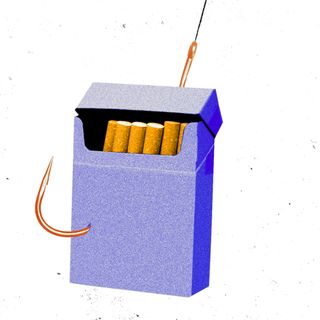Here’s a familiar setting: a hard day’s work followed by winding down with ambient scrolling, trashy TV, or anything that’s light on the brain. While one may be tempted to feel guilty for the indulgence, this may actually be the brain’s way of clearing out its own system of toxin build-up. A new study uses magnetic resonance spectroscopy to prove as much: the mental fatigue after a mentally strenuous day that compels us to partake in low-effort activities may be a form of self-defense.
Published on Thursday in Current Biology,the study was conducted by a team of researchers from the Pitié-Salpêtrière University Hospital in Paris. They showed how there’s a functional reason behind mental fatigue that we would do well not to ignore. “Influential theories suggested that fatigue is a sort of illusion cooked up by the brain to make us stop whatever we are doing and turn to a more gratifying activity,” said Mathias Pessiglione, co-author of the study, in a press release.
There’s a neurotransmitter called glutamate that’s responsible for much of our functioning, but its quantity is something that’s carefully controlled. When we’re engaged in long hours of cognitively demanding work, glutamate builds up in our lateral prefrontal cortex — which the brain needs to get rid of. Too much of it can lead to toxicity. Ergo, fatigue: a response that diverts us from the cognitive work that’s leading to the build-up.
Related on The Swaddle:
How the Pressure To Be Politically Correct Can Lead to Mental Fatigue
In the experiment, two groups of participants performed sets of activities that were both high-demand and low-demand, cognitively speaking. The measure of what was high or low demand has to do with a process called cognitive control: it’s when we engage in complex decision-making based on specific goals or plans, and is also otherwise known as executive control.
“At the end of the day, high-demand cognitive work resulted in higher glutamate concentration and glutamate/glutamine diffusion in a cognitive control brain region (lateral prefrontal cortex [lPFC]), relative to low-demand cognitive work and to a reference brain region (primary visual cortex [V1]),” the study observed.
The theory could explain why it’s much harder to exercise cognitive control after a stressful workday. “Choice-related fatigue markers were only present in the high-demand group… and a preference shift toward short-delay and little-effort options,” the researchers observed.
Still, the findings don’t say much about how this regulatory mechanism works for individuals living with high mental fatigue due to other factors, such as depression or other mental illnesses. But it does reiterate something we’ve known to be important but have long ignored: the importance of trusting our bodies. As for how we beat mental fatigue itself? “I would employ good old recipes: rest and sleep! There is good evidence that glutamate is eliminated from synapses during sleep,” Pessiglione said.




